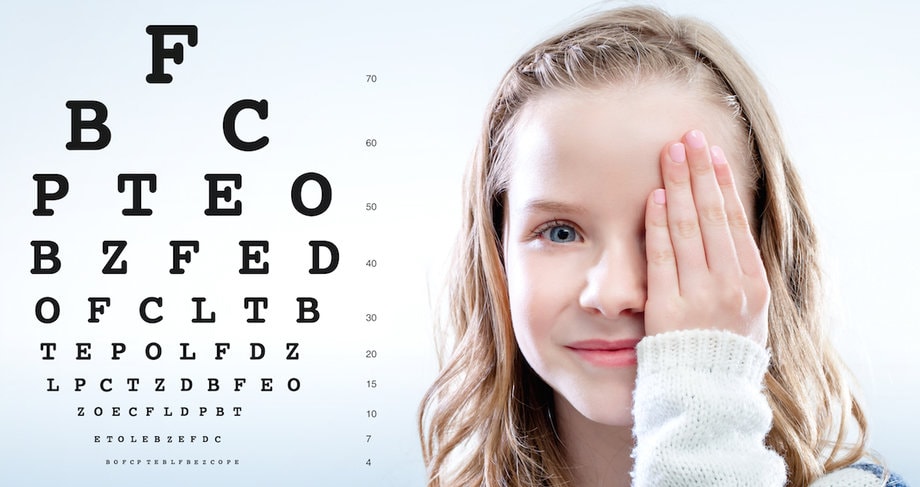Why Children’s Eye Health Shouldn’t Be Overlooked

This article aims to highlight the significance of not neglecting children’s eye health.
It emphasizes the importance of early eye health screenings and identifies common eye conditions in children.
Additionally, it discusses the signs and symptoms of eye problems in kids and the impact of screen time on their eye health.
Furthermore, the article explores the role of nutrition in maintaining healthy eyes in children.
Finally, it offers tips for promoting good eye habits in kids and provides resources for parents to support their children’s eye health.
Key Takeaways
- Early screenings enable early intervention for optimal vision development
- Vision development is a complex process that starts at birth
- Early detection allows for timely intervention and treatment
- Visual impairment can affect a student’s ability to learn
The Importance of Early Eye Health Screenings
Early eye health screenings play a crucial role in ensuring the well-being of children’s vision. These screenings enable early intervention, which is essential for optimal vision development in children. Early identification of eye problems allows for timely treatment, preventing potential long-term consequences.
Vision development is a complex process that starts at birth and continues throughout childhood. During this period, the visual system undergoes significant changes, and any disruption in this process can have a profound impact on a child’s visual abilities.
Common Eye Conditions in Children
This discussion focuses on the importance of early detection of common eye conditions in children.
Early detection is crucial as it allows for timely intervention and treatment, preventing potential vision problems from affecting a child’s academic performance.
Parents play a vital role in preventing eye conditions by ensuring regular eye screenings, promoting healthy eye habits, and creating a supportive environment for their children’s visual needs.
These eye conditions can have a significant impact on academic performance, as they can cause difficulties in reading, writing, and overall visual perception, highlighting the need for early detection and intervention.
Early Detection Importance
Detecting eye health issues in children is crucial due to the potential long-term effects on their vision. Early detection of eye conditions can lead to timely treatment and prevention of further complications.
Parents play a significant role in ensuring the well-being of their children’s eyes. They can contribute to the prevention strategies by ensuring regular eye examinations for their children, especially during critical developmental stages.
Additionally, parents can promote good eye health by encouraging healthy habits such as limiting screen time, providing a balanced diet rich in essential nutrients, and ensuring adequate rest for their children’s eyes.
Preventive Measures for Parents
To ensure the well-being of their children’s eyes, parents can actively engage in preventive measures such as scheduling regular eye examinations, promoting healthy habits, and providing a balanced diet rich in essential nutrients. Preventing myopia, or nearsightedness, is of particular importance. Research has shown that spending time outdoors can significantly reduce the risk of developing myopia in children. Outdoor activities, such as playing sports or simply spending time in natural light, help to stimulate the eye’s ability to focus on distant objects and prevent the elongation of the eyeball that leads to myopia. Encouraging children to spend at least two hours a day outside can have a positive impact on their eye health. Additionally, incorporating a balanced diet that includes foods rich in nutrients like vitamin A, C, and E, as well as omega-3 fatty acids, can further support their eye health.
| Preventive Measures | Benefits |
|---|---|
| Regular eye examinations | Early detection of eye problems |
| Promoting healthy habits | Reduced risk of eye strain and fatigue |
| Balanced diet | Improved eye health |
Impact on Academic Performance
The impact of poor eye health on academic performance is a significant concern that should be addressed.
Visual impairment, resulting from various eye conditions, can have a detrimental effect on a student’s ability to learn. Studies have shown that children with visual impairments are more likely to experience difficulties in reading, writing, and overall academic achievement.
Visual impairments can lead to difficulties in seeing the board, reading text, and recognizing facial expressions or body language, all of which are crucial for effective learning. Moreover, these challenges can affect a student’s self-esteem and motivation, potentially leading to decreased engagement in the classroom.
It is therefore essential that efforts are made to identify and address visual impairments early on, through regular eye screenings and access to appropriate interventions, in order to optimize academic performance and ensure equal educational opportunities for all students.
Signs and Symptoms of Eye Problems in Kids
Common signs and symptoms of eye problems in children include:
- Redness
- Excessive tearing
- Squinting
These warning signs can indicate a range of eye conditions, such as conjunctivitis, allergies, or refractive errors.
It is crucial for parents and caregivers to be vigilant in identifying these signs as early detection and intervention can prevent further visual impairment and potential academic difficulties.
Prompt medical attention and appropriate treatment options are necessary to manage these eye problems effectively. Treatment options may include medication, eyeglasses, or vision therapy, depending on the specific condition.
Regular eye exams are also essential to monitor the child’s visual health and ensure early detection of any potential issues.
How Screen Time Affects Children’s Eye Health
Excessive screen time has been found to have a detrimental impact on visual health in young individuals. One of the factors contributing to this is blue light exposure, which is emitted by electronic devices such as smartphones, tablets, and computers. Blue light has a shorter wavelength and higher energy compared to other visible light, making it more likely to scatter within the eye and cause visual discomfort.
Prolonged exposure to blue light can also lead to digital eye strain, characterized by symptoms such as dry eyes, blurred vision, and headaches. Furthermore, excessive screen time often results in sedentary behavior, reducing the time children spend engaging in outdoor activities.
This lack of outdoor time further contributes to the overall decline in visual health among young individuals. Thus, it is essential to limit screen time and encourage outdoor activities to protect and promote children’s eye health.
Nutritional Factors for Maintaining Healthy Eyes in Children
This discussion will focus on the nutritional factors that are important for maintaining healthy eyes in children. Specifically, we will explore the role of Vitamin A in promoting eye health and its benefits for vision.
Additionally, we will discuss the significance of Omega-3 fatty acids in supporting visual development and the importance of antioxidants in protecting the eyes from oxidative damage.
Vitamin a and Eyes
One important aspect to consider when discussing children’s eye health is the role of Vitamin A in maintaining optimal visual function. Vitamin A is essential for the development and function of the retina, which is responsible for converting light into electrical signals that can be interpreted by the brain. A deficiency in Vitamin A can lead to a condition called night blindness, where individuals have difficulty seeing in dim light. Moreover, Vitamin A plays a crucial role in preventing blindness, especially in developing countries where malnutrition is prevalent. Eye health education programs often emphasize the importance of consuming Vitamin A-rich foods such as carrots, sweet potatoes, and leafy greens. These foods can help ensure that children receive adequate amounts of Vitamin A, promoting healthy vision and reducing the risk of vision impairment.
| Vitamin A-Rich Foods | Benefits |
|---|---|
| Carrots | Good for eyesight and night vision |
| Sweet Potatoes | Rich source of beta-carotene, which is converted into Vitamin A |
| Spinach | Contains lutein and zeaxanthin, which promote eye health |
| Kale | High in antioxidants that protect the eyes from damage |
| Apricots | Contains beta-carotene and Vitamin C, both beneficial for eye health |
Omega-3 for Vision
Omega-3 fatty acids have been found to play an important role in maintaining optimal visual function and reducing the risk of vision impairment. Visual development in children is a complex process that requires proper nutrient intake, including omega-3 fatty acids. These essential fatty acids are crucial for the development and function of the retina and other visual structures.
Research suggests that omega-3 fatty acids, particularly docosahexaenoic acid (DHA), are important for visual acuity and may also have a protective effect against age-related macular degeneration. Furthermore, omega-3 fatty acids have been shown to enhance the function of the tear film, which is essential for eye lubrication and protection.
Importance of Antioxidants
Antioxidants play a significant role in maintaining overall health and preventing oxidative damage in the body. When it comes to eye health, antioxidants have been found to provide several benefits, particularly in children’s eyesight.
The eyes are constantly exposed to environmental factors that can lead to oxidative stress and damage. Antioxidants help neutralize harmful free radicals that can cause cellular damage in the eyes. Studies have shown that higher intake of antioxidant-rich foods, such as fruits and vegetables, is associated with a reduced risk of eye diseases and vision problems in children.
Antioxidants, such as vitamin C, vitamin E, and lutein, have been found to support healthy vision development and protect against conditions like age-related macular degeneration and cataracts. Ensuring an adequate intake of antioxidants through a balanced diet is crucial for maintaining optimal eye health in children.
Tips for Promoting Good Eye Habits in Kids
Developing good eye habits in children is crucial for maintaining optimal eye health throughout their lives. Here are some important tips for promoting good eye habits in kids:
- Encourage outdoor play: Spending time outdoors has been linked to a reduced risk of myopia in children. The natural light and distance vision that outdoor play provides can help prevent the onset and progression of nearsightedness.
- Limit screen time: Excessive screen time, especially close-up activities like reading or playing video games, can strain the eyes and contribute to the development of myopia. It is recommended to limit screen time and encourage frequent breaks to rest the eyes.
- Ensure proper lighting: Adequate lighting is essential for reducing eye strain. It is important to provide sufficient lighting while studying, reading, or engaging in other activities that require visual focus.
- Promote regular eye exams: Regular eye examinations can help detect and address any potential eye problems early on. It is recommended to schedule routine eye exams for children, even if they do not exhibit any symptoms.
Resources for Parents to Support Their Children’s Eye Health
Parents can access various resources to support the maintenance of their children’s eye health, such as educational materials, online articles, and guidance from healthcare professionals.
Early intervention is crucial to prevent and address eye health issues in children. By accessing resources, parents can learn about the importance of regular eye exams for their children and the signs and symptoms of common eye conditions.
Educational materials and online articles provide information on how to promote good eye habits in children, including tips for limiting screen time and encouraging outdoor activities.
Additionally, parents can find guidance from healthcare professionals who can recommend suitable eye care products, such as protective eyewear for sports or specialized glasses for children with visual impairments.
Frequently Asked Questions
What Are Some Common Eye Exercises That Can Help Improve Children’s Eye Health?
Eye health exercises can have a positive impact on children’s eye health. Additionally, outdoor activities can also provide benefits for eye health. Incorporating these activities into a child’s routine can promote overall eye health.
Are There Any Specific Foods or Supplements That Can Prevent Eye Problems in Children?
Foods and supplements play a crucial role in preventing eye problems in children. In addition to regular eye exercises, genetics, screen time effects, and the frequency of eye exams should also be considered to maintain optimal eye health.
Can Eye Problems in Children Be Hereditary?
Eye problems in children can be hereditary, as genetic factors play a significant role in children’s eye health. Understanding the inheritance patterns and identifying specific genes associated with eye disorders can help in early detection and management of these conditions.
What Are the Potential Long-Term Effects of Excessive Screen Time on Children’s Eye Health?
Excessive screen time in children poses potential risks to their eye health. It is important to consider preventive measures to mitigate these effects, such as taking regular breaks, maintaining proper distance, and ensuring adequate lighting.
How Often Should Children Have Their Eyes Examined by a Professional?
Eye health frequency and optimal examination age for children are important considerations. Regular eye examinations by a professional are recommended to identify potential vision problems, as early detection and intervention can aid in preventing long-term complications.









